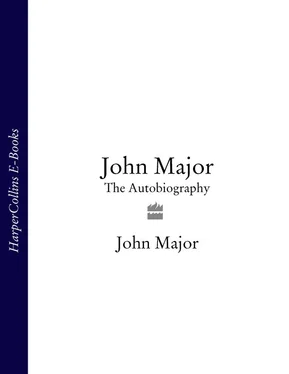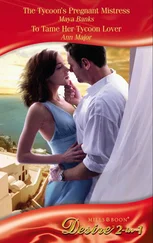I barely knew either of them before they were elected, although Ken’s emergence as a Labour council candidate caused quite a stir in Norwood, where his mother was an active member of the Conservative Association. Both of them were already identifiably the characters who later became so well known, and Tony Banks was soon involved in controversy as allegedly the moving spirit behind an attempt to ban the Queen’s portrait from the council chamber. (After the 1997 general election he was photographed taking the loyal oath with his fingers crossed behind his back.)
Moving to Thornton Ward did me no good at all: I lost by 411 votes. I was disappointed by the reversal of our fortunes in Lambeth because we were generally thought to have done a good job. Years later Ken Livingstone was very flattering about what our Conservative council had achieved. But there was still so much more to do. I was philosophical about my own defeat. The role of councillor in opposition did not appeal very much.
I decided it was time to try to move onto the national stage. To do so I needed to pass the selection procedure to get on the Conservative Central Office list of approved candidates. Jill Knight, the MP for Edgbaston, who lived in Lambeth and had heard me speak, sponsored my application, and by early June it had been submitted. Then fate, in the shape of Peter Golds, intervened.
Peter was a firm believer that I should be in Parliament. He had mentioned this to a fellow agent, Tony Dey, and took me to see Tony and Bob Bell, the affable President of the St Pancras North Association. It was suggested that I apply for the seat. No one was remotely bothered that I was not an approved candidate. St Pancras North was a safe Labour seat, with Jock Stallard as a well-established local Member. There was little chance of winning, but it was perfect for me: a London constituency, convenient to where I lived and worked, affordable, even on my average income, and the best I could hope for aged twenty-eight.
I had continued studying, and in September 1971 I finally sat and passed the Accountancy and Practice of Banking papers that completed my Banking Diploma. It had taken me six years to pass ten examinations, all of them at the first attempt, as politics, Nigeria, recovery from the car accident and marriage had competed for the limited hours of every day. I was delighted to have passed, even though the qualification was less a tool for a banking career than an element of building up the necessary curriculum vitae for politics. I applied for the vacancy at St Pancras North, was invited for interview with thirty others, and was shortlisted with only one rival.
That summer Norma and I enjoyed a glorious holiday in an old chantry with a secluded garden. We lazed through the long summer days and planned the future. Norma’s pregnancy was nearing full term. She had never been fitter or happier, and she bloomed with health. It was fortunate that she did so, because Elizabeth was in no hurry to make her first entrance. Then, early one November evening, she finally announced her impending arrival.
I saw both my children being born, and am glad I did so. In 1971, when Elizabeth was born, it was quite revolutionary to allow fathers to be present, but King’s College Hospital in Camberwell had no qualms about it at all. Elizabeth was a full-term baby, but her birth was interminable. After fifteen hours I was sent away to lie down – ‘This is all very tiring, dear,’ said the nurse. A few hours later the doctors took me aside and told me Norma needed an epidural. The risks were explained to us, but Norma agreed, and after thirty hours, in the early hours of 13 November 1971, a plump and chubby Elizabeth bounced across the delivery table and lustily announced that a new force had arrived.
There are some moments in your life when every second is implanted indelibly in your mind. Perhaps most parents feel this at the birth of their child. I certainly did. And when I held Elizabeth for the first time I knew my life was changed. She was warm and comfortable, vulnerable and dependent. Here was a baby who – whatever else happened – would for ever be loved, and who one day, I hoped, would tell her grandchildren about Norma and me.
It was after 2 a.m. when I left the hospital to walk home, for the buses had stopped and there were no taxis around at that time. I didn’t so much walk as float. Anyone about the streets that November night would have wondered, who was this lunatic who ran, walked, skipped, turned round in circles, hopped, stepped, jumped up and down and cheerily sang to himself out of sheer exhilaration?
I planned the future and, more immediately, wondered how early I could phone Dee, Norma’s mother, with the news. I needn’t have worried about that. As I stepped into our flat the phone rang. It was Dee. She was very agitated. ‘She’s had the baby, hasn’t she?’ she said. ‘I know she has. I haven’t been able to sleep. Is she all right?’
I told her. She sighed and hung up without a word. Moments later she phoned back.
‘Sorry,’ she said. ‘I was so relieved. I knew, just knew she was having the baby. Now tell me all about it.’
So I did. And if the world ever contained a more relieved and pleased grandparent – well, I can’t imagine her.
At first Elizabeth was going to be called Jane. But that didn’t last. When I visited Norma in hospital the following day she was cuddling a plump and contented baby.
‘I don’t think Jane is right,’ said Norma. ‘She looks like an Elizabeth.’ And so Elizabeth she became.
Later that month I was selected as the prospective parliamentary candidate for St Pancras North after addressing the interview panel and answering their questions. I had received an enthusiastic response, and was told I had won comfortably. ‘Some voted for you and quite a few for Elizabeth,’ as Joan Couzens, soon to be my press officer, put it. Joan was one of a number of characters in the association, and certainly the most vivid. She loathed the Labour Party she saw in London, which brought out in her some outrageously right-wing instincts which were held in check by her common sense. She enjoyed flirting with them, however, and often wrote me draft press releases in poetry, based on her instincts, not her common sense, which we both knew could never be used, but which gave us great fun. She was a fine artist as well, and she and her husband Bertie became firm friends.
St Pancras North may have been unpromising political territory for the Conservatives, but my three years as its candidate, which embraced both the February and October general elections of 1974, taught me a huge amount about the party and the volunteers who ran it at local level.
Tony Dey, the agent, was laconic and efficient. Bob Bell, the President, and his wife Edith, Francis Klein, the Chairman, Dennis Friis, Roland Walker and so many others worked tirelessly for little political reward other than to uphold Conservative principles. They weren’t ideological warriors. They believed in the Conservative cause. They grumbled sometimes about some of the leaders and some of the policy, but they loyally battled on.
I worked hard for them in St Pancras. Between my adoption as prospective candidate and the February 1974 election I worked the seat as if it were a marginal, visiting it nearly every evening and every weekend. Margaret Jay, who succeeded Tony Dey as my agent, worked me hard – and herself as well. Norma joined me whenever she could. It was hard work but it was a lot of fun too, although it became harder as Ted Heath’s government ran into difficulties.
Ted had been elected on a strong centre-right platform, but events had forced him off it. Trade union power forced up wages and prices and brought about an incomes policy that upset many in the party and even caused discontented murmurings amongst the St Pancras North loyalists. Ted took Britain into the Common Market, an inevitable, correct and courageous decision, but one that was very controversial, too.
Читать дальше












